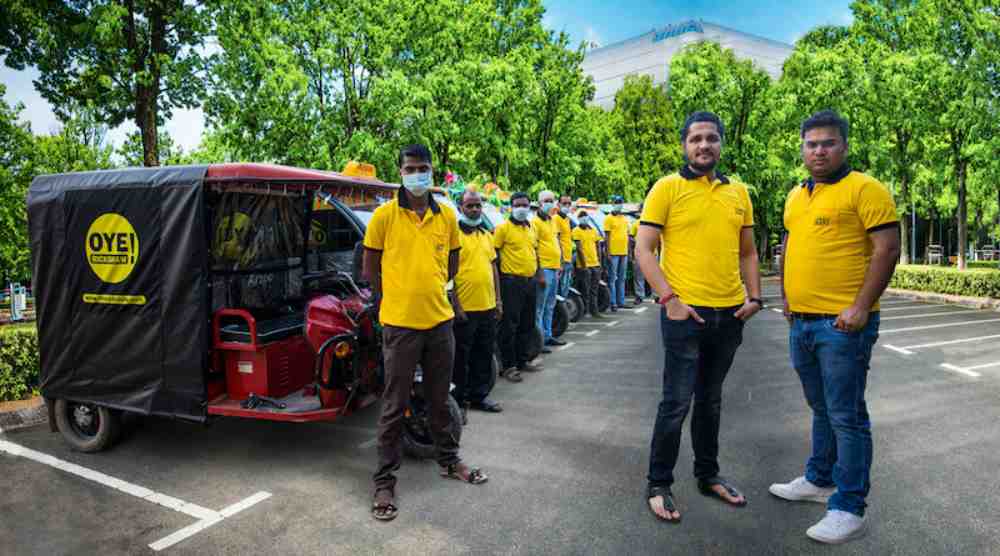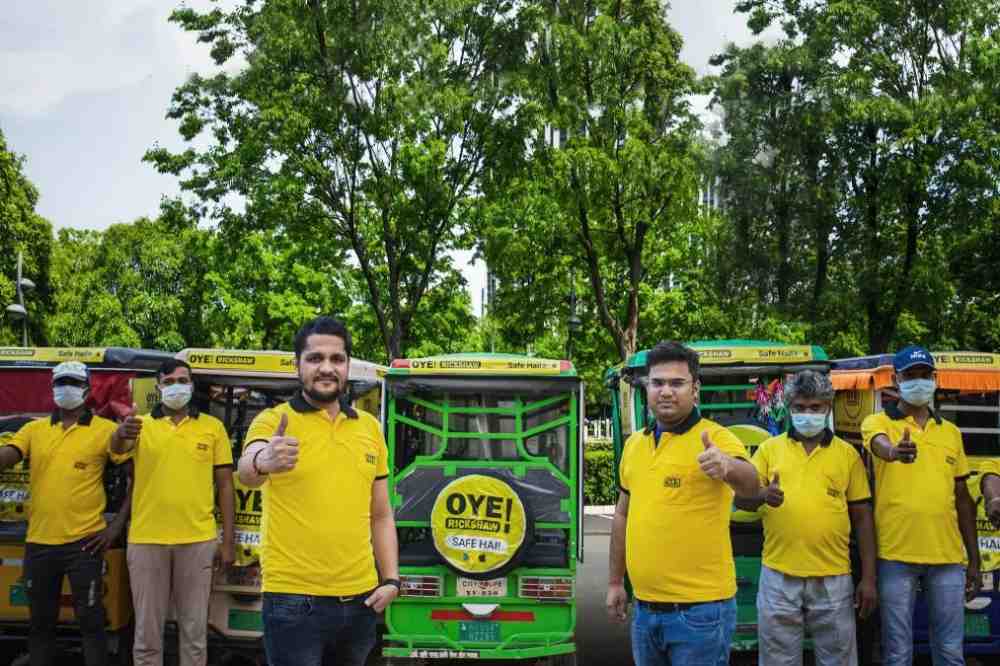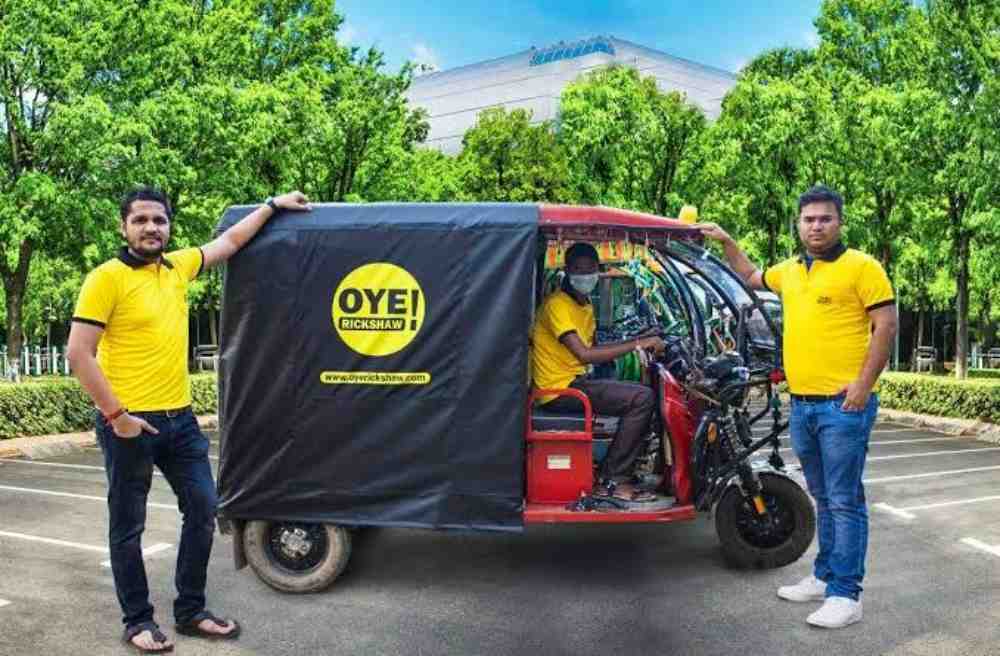We are living at a time when India is endorsing the adoption of e-rickshaws to reduce carbon footprint. Autorickshaws form an integral part of transportation as the majority of Indians rely on autos for moving around. Delhi-headquartered startup ‘Oye! Rickshaw’ intends to cash in on this growing trend. The startup’s eco-friendly rickshaws run on swappable batteries and emit no carbon. It has 120 battery-swapping stations across four cities and provides quick services due to zero charging time.
Mohit Sarma and Akashdeep Singh, two childhood friends who are mechanical engineering graduates, started Oye! Rickshaw in 2017. Before launching Oye, Sharma had run the startup Jangid Motors along with his uncle. Jangid Motors produced India’s first locally-developed e-rickshaws. However, the startup didn’t offer any ride services. This is where Sharma saw the opportunity. India has 120 million daily commuters. It is a huge market for an economical and eco-friendly ride subscription service. And, Sharma had the advantage of being aware of the mechanics of e-rickshaw production. This led to the formation of Oye. Since its inception, the startup has completed more than 11 million rides. They claim to have a subscriber base of 200,000. Their major competitors are Uber and Ola.


For sure, electric passenger vehicles are going to be the future of India if electric vehicle makers overcome challenges such as charging infrastructure and safety. Oye, which is already supported by leading companies such as Xiaomi, and top investors like Bengaluru-based Chiratae Ventures, and Matrix Partners in San Francisco, Indian billionaire Pawan Munjal, chairman, and CEO of motorcycle maker Hero MotoCorp, is preparing to raise a Series B round of about $15 million to $25 million in the next few months. Oye targets local customers who prefer autorickshaws over cars. During the pandemic, when Oye saw a decrease in their ride-hailing service, they decided to start Oye! Delivery. The startup partnered with JioMart and Ninjacart for delivery services, and now Oye is in talks with food tech giants such as Swiggy and Zomato to captialise the food delivery service market.


When it comes to revenue, if Ola and Uber take a cut from trips made by drivers, Oye’s revenue flows in from their customer’s subscriptions. The charge depends upon the number of rides a customer wants in a month. There are three options: 5, 15, and 50 rides. Moreover, Oye is considering developing an AI-based algorithm to enhance the service. The startup also has a customised algorithm-based map for drivers to help them get more rides and thus more revenue.
